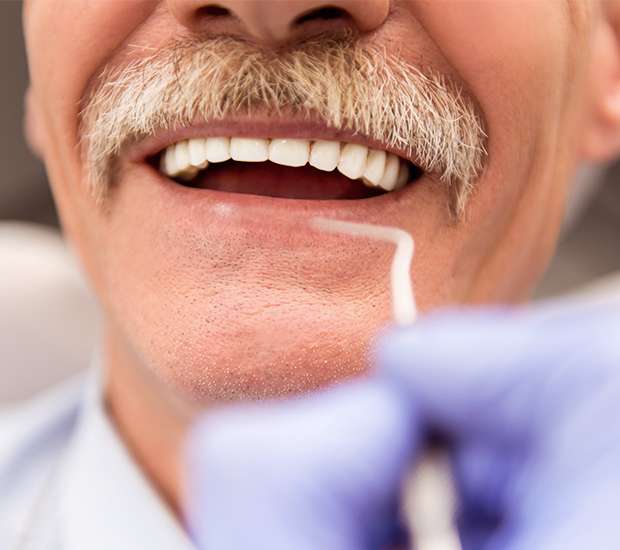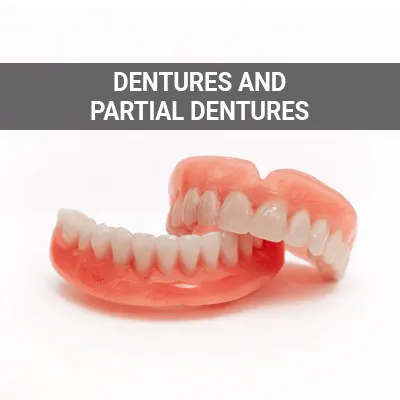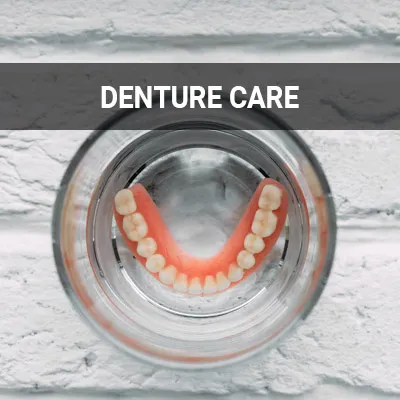Adjusting to New Dentures Federal Way, WA
Adjusting to new dentures can be a challenge because the feel of these prosthetics is different from your natural teeth. However, once you get used to them, it should be a more enjoyable experience. If your dentures are new, expect a few weeks to adjust.
Getting dentures for the first time can be exciting, as a new set of teeth can restore much of the lost functionality of a person's original teeth. Those who wear dentures can find assistance with adjusting to new dentures at Smile Center Dental Care in Federal Way and the surrounding area. Call us at (253) 336-0023 for advice about adjusting to new dentures and modifying them for comfort.
Tips For Adjusting to New Dentures
When transitioning to dentures, patients should give themselves time to adjust. The new dentures may be uncomfortable at first and will likely require more adjusting. Following some simple tips can help patients stay healthy and to keep their mouths happy. It's important to follow the recommendations on this page because it takes time to adjust to new dentures.
Patients can drink nutritional shakes while adjusting to their dentures to be sure to get vital nutrients. They should avoid sticky foods and foods that might get stuck in the teeth or under the dentures. Popcorn, corn on the cob, and nuts should be avoided while adjusting to new dentures. Patients may also want to avoid tough meats that require extensive chewing, such as pork chops, steak, or ribs.
“When transitioning to dentures, patients should give themselves time to adjust.”
Denture Hygiene Routine
Another crucial aspect of adjusting to new dentures is a consistent and effective dental hygiene routine. Proper denture care is essential to maintaining the health of the gums and mouth. Dentures should be brushed and rinsed every day to remove food and plaque. It is also vital to soak dentures overnight since dentures need to remain moist to maintain their shape.
People should avoid using abrasive cleaning materials such as harsh or whitening toothpaste, hot water, and products that contain bleach. It is also essential to schedule regular dental check-ups. These appointments allow us to ensure that the dentures fit properly and prevent slippage and discomfort.
“Another crucial aspect of adjusting to new dentures is a consistent and effective dental hygiene routine.”
What To Expect in the First 30 Days
The first 30 days of wearing new dentures will be an adjustment period. For instance, learning to speak and eat while wearing dentures can be challenging. Patients may experience an increase in salivation when they start wearing these prostheses. This is normal in the first couple of weeks and should decrease as the mouth adjusts. Patients who had tooth extractions before getting dentures may experience some soreness as the mouth adapts to the protheses.
This soreness is normal in the first four weeks; however, if the pain persists and it feels as if the dentures do not fit well, the patient should talk to a dentist. One main tip is to use the recommended amount of denture adhesive or cream. During an appointment, we can go over the possible products and recommend the most effective solution for your needs. If the denture still feels as if it does not fit, do not use more cream to make it fit. Please contact us instead.
“The first 30 days of wearing new dentures will be an adjustment period.”
Check out what others are saying about our dental services on Google: Adjusting to New Dentures in Federal Way, WA
Change Eating Practices
New denture wearers may want to practice a few meals at home alone. In the first couple of days, focus on softer foods, such as mashed potatoes or yogurt. Avoid biting with the front of the teeth because this action may dislodge the dentures.
Doing things like chewing on both sides of the mouth, cutting food into small pieces, chewing slowly, and drinking fluids to wash the mouth out can all be effective ways to prepare for life with dentures. Be careful with hot liquids. Dentures insulate the mouth, making it less sensitive to heat.
“Doing things like chewing on both sides of the mouth, cutting food into small pieces, chewing slowly, and drinking fluids to wash the mouth out can all be effective ways to prepare for life with dentures.”
Questions Answered on This Page
Q. How should people take care of their new dentures?
Q. What are some tips to help adjust to new dentures?
Q. What can one expect with new dentures?
Q. How should patients change their eating practices with dentures?
People Also Ask
Q. Why are dentures a preferred treatment?
Q. What is the process of getting partial dentures?
Q. What lifestyle changes will people experience after getting dentures?
Q. What should I do if my dentures start to feel uncomfortable?
Q. What is a partial removable denture for one missing tooth?
Q. How can I maintain my dentures?
Frequently Asked Questions
Q. Can new dentures be adjusted?
A. When you are adjusting to new dentures, you may experience discomfort when wearing them. If you see sores on your gums or tongue, the dentures may not fit correctly. Your dentist can adjust your dentures if necessary.
Q. What can I do for pain when I am adjusting to new dentures?
A. Use an oral topical gel or cream made to relieve pain. You can take over-the-counter pain relievers such as ibuprofen to reduce pain and inflammation. Take your dentures out at night and for extended periods during the day.
Q. Why do new dentures cause too much saliva?
A. When your mouth is adjusting to new dentures, there is a foreign object in your mouth. This makes your salivary glands work harder. After two weeks of wearing dentures, the saliva should decrease to more normal levels.
Q. How often should I see the dentist after getting new dentures?
A. You should make a yearly appointment with your dentist to check your dentures. This can verify fit and make sure they stay comfortable. This annual visit may include an exam to check for oral health issues, such as cancer.
Q. Can I sleep while wearing dentures?
A. Yes, you can wear your dentures at night. However, the American College of Prosthodontists recommends removing dentures while sleeping to give the gums a chance to rest from the pressure of the dentures. You should always take your dentures out every 24 hours to clean them.
Dental Terminology
Helpful Related Links
- American Dental Association (ADA). Glossary of Dental Clinical Terms. 2024
About our business and website security
- Smile Center Dental Care was established in 2005.
- We accept the following payment methods: American Express, Cash, Check, Discover, MasterCard, and Visa
- We serve patients from the following counties: King County and Pierce County
- We serve patients from the following cities: Federal Way, Auburn, Kent, Des Moines, Tacoma, Fife, Milton, Edgewood, SeaTac, and Algona
- National Provider Identifier Database (1770035289). View NPI Registry Information
- Norton Safe Web. View Details
- Trend Micro Site Safety Center. View Details
Back to top of Adjusting to New Dentures










